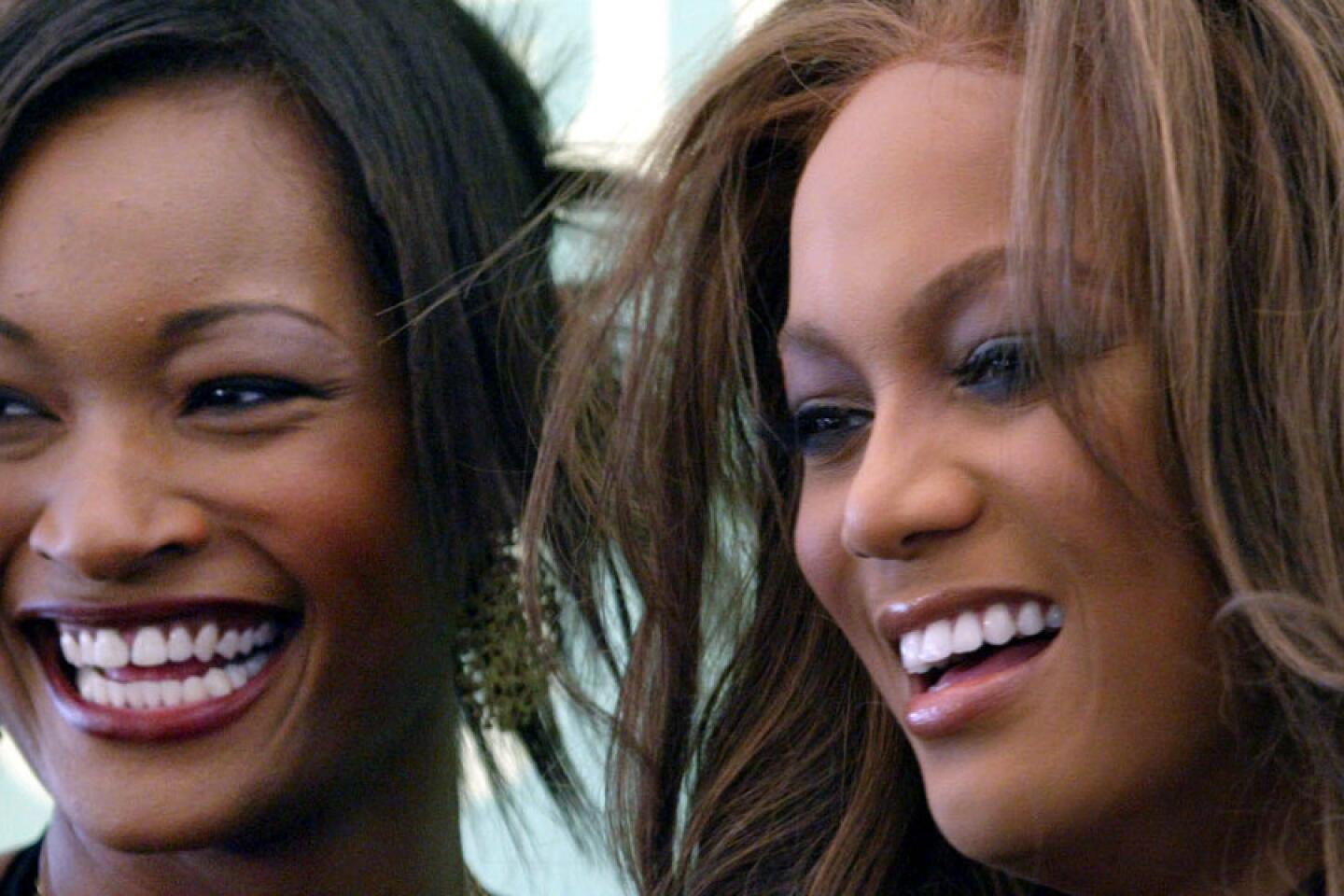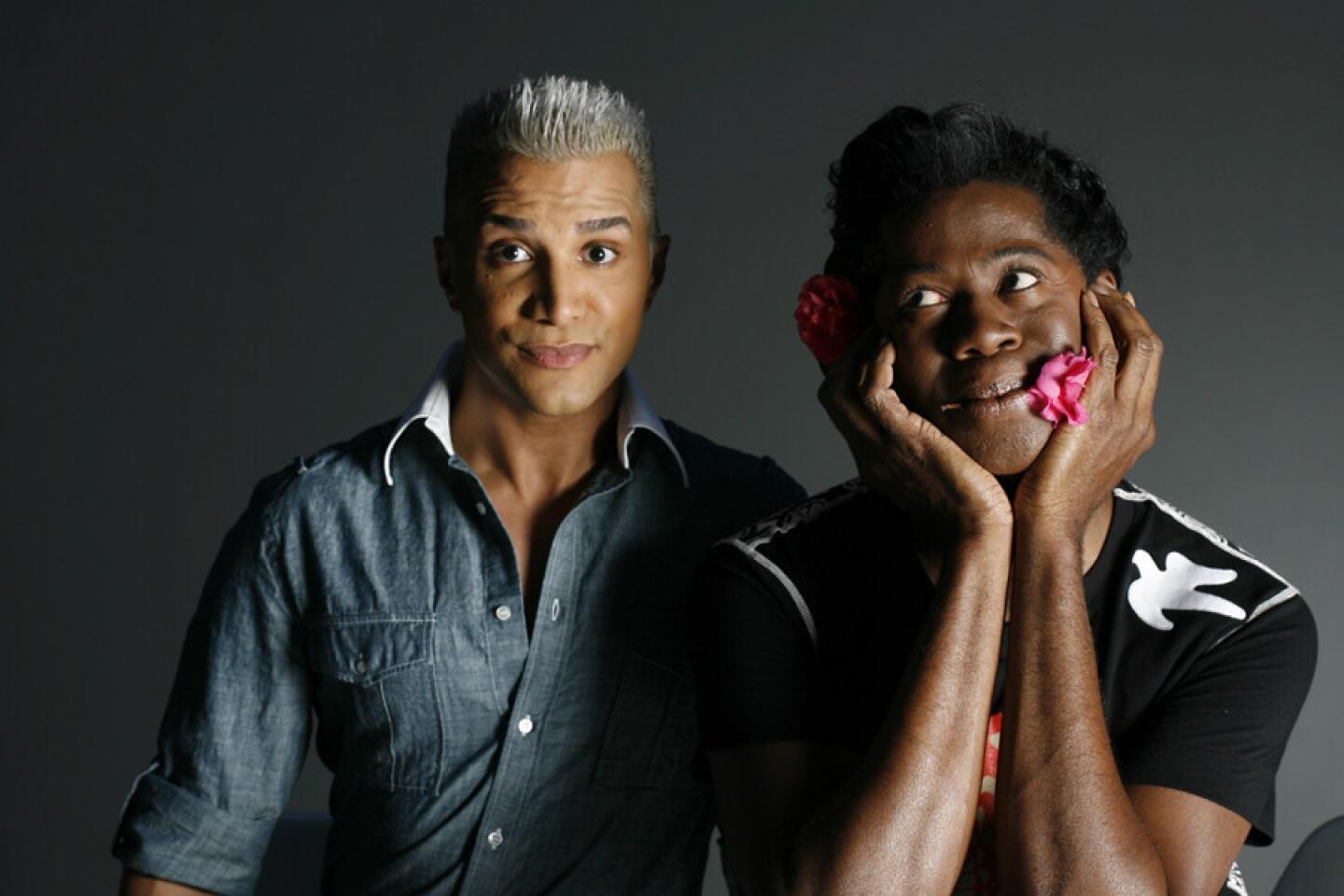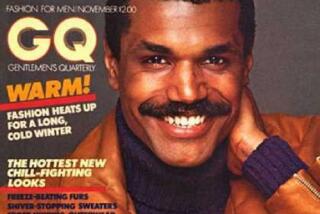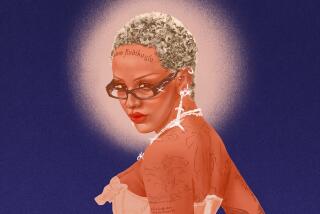‘Next Top Model’ provided a runway to freedom for one young black man trapped by gender conformity
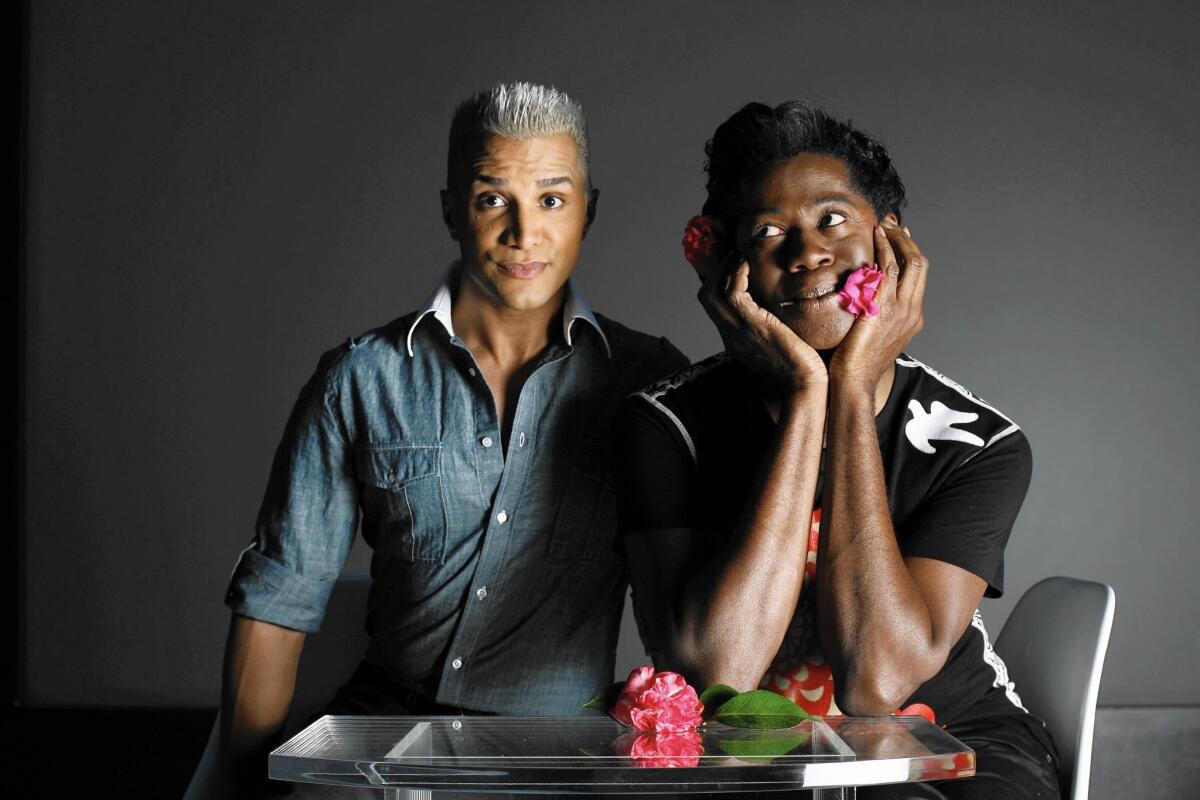
Miss J., right, was the “runway diva extraordinaire” who shepherded the catwalks of supermodels Naomi Campbell and Kimora Lee Simmons, among others. He’s pictured with Mister J.
- Share via
When Miss J. Alexander arrived on set in one of the first episodes of “America’s Next Top Model” — in just a T-shirt and heels — jaws dropped. Most television audiences had never seen such combined femininity and blackness on full display in a male body. But they learned to deal with it.
Thirteen seasons later, Miss J. Alexander was joined by André Leon Talley in oversized capes and blinged-out brooches, dripping in self-assurance. Again, viewers had little choice but to accept him as is.
SIGN UP for the free Indie Focus movies newsletter >>
Miss J. and Talley were but small parts of the “Top Model” train led by Tyra Banks, but as the show ended after 22 seasons Friday, I realized that I will deeply miss them. For this lil’ sissy boy from South Carolina with an imagination far beyond the confines of my black and conservative lineage, their representation was paramount.
They allowed me to imagine a world that accepted gender-bending black folks while I still lived in one where manhood and masculinity were narrowly defined. Together, they introduced gender nonconformity by black men on a mainstream platform.
I was reared in a family that rejected anything outside of the gender binary.
The only male relative in my life didn’t believe in anything but traditional masculinity. The women in my life weren’t much better. My grandmother would say it was God who gave heels and floral prints to women. That if I “acted like a girl,” I somehow disrespected the Lord.
But even at that young age, I knew these conceptions of masculinities were problematic and unbearably restrictive. My fabulousness could not be contained, and these ideas of black manhood didn’t fit who I was.
I wanted to trample popular conceptions of black masculinity with every step I took in a pair of heels. But I couldn’t act on it. Seeing [Miss J] gave me hope of a future to come.
— Tre’vell Anderson, Los Angeles Times
Bucking the system that meant to define me, at 12 I sneaked to watch “Top Model.” With my room door locked and the volume just above mute, I tuned in every week, every season, to revel in the gender-bending on display.
Miss J. was the “runway diva extraordinaire” who shepherded the catwalks of supermodels Naomi Campbell and Kimora Lee Simmons, among others. His skill was unmatched in turning gangly ducklings into graceful swans with the very click-clack of his stilettos.
Talley was legendary in his own right for breaking glass ceilings during his 30-year stint at Vogue magazine. His voice, a deep yet feminine tremble, and 6-foot-6 frame on the “Top Model” set well-accented his perfectly coiffed salt-and-pepper fade. He commanded attention.
Their presentation resonated with my inner gender-bender clamoring for liberation. I wanted to be them. I wanted to walk into a room and stun folks with my confidence. I wanted to trample popular conceptions of black masculinity with every step I took in a pair of heels. But I couldn’t act on it. Seeing them do so, however, gave me hope of a future to come.
Though I no longer run to my TV to catch the first airing, “Top Model” holds a spot on my DVR. But it wasn’t until Banks announced the show’s cancellation that I realized the influence it had had on me.
To put it plainly, if not for the show, which introduced me to Miss J. and Andre Leon Talley, I might not have ever known that a black male could redefine gender in a way that made room for his true self. I learned that to live free from the shackles of conformity is a difficult undertaking, but when we find a way to do so, in spite of imposed assumptions, we exist in a state of joyous resistance.
Their examples taught me how to resist, through authentic expression, in a world built to restrict.
Freedom is a realization. And I now know that. For black boys trapped in cycles of gender violence, conformity and confusion, “Top Model” made all the difference.
---------------------
‘America’s Next Top Model’
Where: KTLA
When: 9 p.m. Friday
Rating: TV-PG-L (may be unsuitable for young children, with an advisory for coarse language)
ALSO:
Why Spike Lee used satire in ‘Chi-Raq’ to take a shot at gun violence
Tessa Thompson welcomed the challenges of playing a hearing-impaired musician in ‘Creed’
For ‘The Danish Girl,’ Eddie Redmayne studied issues facing transgender people
More to Read
The complete guide to home viewing
Get Screen Gab for everything about the TV shows and streaming movies everyone’s talking about.
You may occasionally receive promotional content from the Los Angeles Times.
